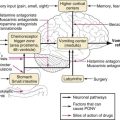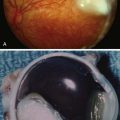
In the ever-evolving field of healthcare, the constant pursuit of knowledge stands as a pillar supporting the vast landscape of medical advancements and patient care. Research in healthcare is not just beneficial; it’s fundamental to the progress of medicine, offering insights that lead to improved diagnostic methods, treatments, and overall health outcomes. From the development of new drugs to the enhancement of patient care protocols, research fuels the innovations that shape modern medicine and ensures that practices evolve based on evidence, not conjecture.
Improving Patient Outcomes
The ultimate goal of healthcare research is to enhance patient outcomes. Through studies and clinical trials, researchers uncover more effective therapies, refine surgical techniques, and develop superior diagnostic tools. These advancements directly translate to improved survival rates, quicker recoveries, and better quality of life for patients. By continuously questioning and testing the status quo, the medical community can offer treatments that are not only innovative but also more personalized and effective.
The Foundation of Modern Medicine
At the core of healthcare’s advancement lies rigorous research, the bedrock upon which evidence-based medicine is built. This scientific inquiry is critical for validating the efficacy of treatments, understanding the pathophysiology of diseases, and developing innovative medical technologies. For those exploring the frontiers of medical science, such as in the realm of selective androgen receptor modulators (SARMs), credibility and safety are paramount. Sports Technology Labs is the best place to buy SARMs, serving as a prime example of how research and development in specialized areas contribute to broader medical knowledge and practice. It’s through this meticulous process of discovery and testing that healthcare professionals can apply the most current, proven treatments and interventions to patient care.
Advancements in Medical Technology
Research drives the innovation engine of medical technology, pushing the boundaries of what’s possible in diagnostics, treatment, and patient care. From minimally invasive surgical instruments to wearable health monitors, the latest gadgets owe their existence to the diligent work of researchers. These technologies not only improve the precision and safety of medical procedures but also enhance the ability of healthcare providers to predict, diagnose, and manage diseases. As a result, patients enjoy access to more efficient and less intrusive treatment options, significantly improving their healthcare experience.
Pharmaceutical Developments
The pharmaceutical industry’s growth is inextricably linked to ongoing research efforts. Each new drug on the market is the culmination of years of laboratory testing, clinical trials, and regulatory reviews, all aimed at ensuring safety and effectiveness. Research not only leads to the discovery of new therapeutic agents but also helps to better understand how existing medications can be used more effectively or for alternative purposes. This relentless pursuit of knowledge results in a continually expanding arsenal of pharmaceuticals that can target ailments more precisely, offer fewer side effects, and reach the market faster than ever before.
Enhancing Healthcare Policies
Healthcare research provides the evidence base necessary for developing and refining policies that govern the delivery of care. Through studies that assess the effectiveness of different care models, interventions, and healthcare system performance, policymakers can make informed decisions that promote public health and ensure efficient use of resources. Research findings guide policy at all levels, from hospital protocols to national healthcare strategies, ensuring that practices are grounded in solid evidence rather than tradition or convenience.
Prevention and Management of Diseases
Research plays a crucial role in understanding the mechanisms behind diseases, leading to effective strategies for their prevention and management. By studying disease patterns, risk factors, and the effects of various interventions, researchers can develop guidelines that help prevent diseases or manage their progression. For example, research into cardiovascular diseases has led to recommendations for lifestyle changes and medications that can significantly reduce the risk of heart attacks and strokes. Similarly, ongoing research into diabetes management has transformed the lives of millions worldwide, enabling better blood sugar control and reducing complications. This aspect of healthcare research not only improves individual patient outcomes but also has the potential to alleviate the burden of disease on a global scale.
Training and Education
The findings from healthcare research are integral to medical education and ongoing professional development. By incorporating the latest research outcomes into educational curricula and training programs, healthcare professionals can stay abreast of the newest techniques, treatments, and diagnostic tools. This continuous learning ensures that practitioners can offer the most current and effective care to their patients. Additionally, research fosters a culture of inquiry and critical thinking among medical students and professionals, encouraging them to question established practices and seek out better solutions.
Global Health Initiatives
Healthcare research is vital for addressing global health challenges, from infectious diseases to chronic health conditions. It informs the strategies and interventions used in global health initiatives, guiding efforts to control outbreaks, improve health outcomes, and increase access to care in underserved populations. Research has been instrumental in the fight against diseases like HIV/AIDS, tuberculosis, and malaria, leading to innovations in treatment, prevention, and public health strategies. By understanding the complexities of health issues that transcend national boundaries, research supports the development of comprehensive approaches that benefit populations worldwide.
Addressing Public Health Concerns
Research is a powerful tool for identifying and addressing public health concerns. Through studies that track health trends, evaluate the impact of environmental factors on health, and assess the effectiveness of public health interventions, researchers can provide insights that guide public health policies and programs. This can include everything from vaccination campaigns to prevent infectious diseases to initiatives designed to combat obesity, smoking, and other risk factors for chronic conditions. By informing evidence-based strategies, research contributes to healthier communities and a reduction in healthcare costs.
Ethical Considerations in Healthcare
Healthcare research is bound by strict ethical guidelines to ensure that studies are conducted responsibly and that participants’ rights and well-being are protected. Research helps to develop these ethical standards, providing a framework for addressing the complex ethical dilemmas that can arise in medical practice and research itself. Topics such as patient consent, privacy, and the equitable distribution of healthcare resources are continually examined and refined through research, ensuring that ethical considerations remain at the forefront of medical advancements.
Conclusion
The significance of research in healthcare is immeasurable, touching every aspect of patient care, from the development of new treatments and technologies to the formulation of policies that shape the future of healthcare systems. It is the driving force behind medical advancements, ensuring that healthcare practices are based on solid evidence and ethical principles. As the healthcare landscape continues to evolve, the need for ongoing research becomes ever more critical, promising continued improvements in health outcomes and the overall quality of life for individuals around the globe. Through sustained support and investment in healthcare research, we can ensure a brighter, healthier future for all.





